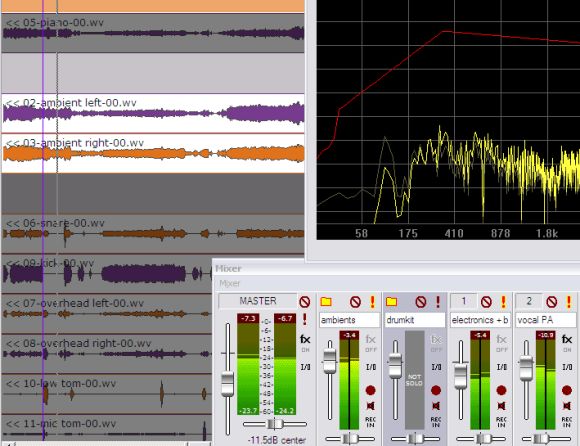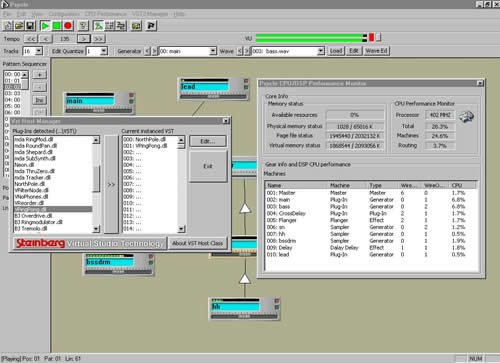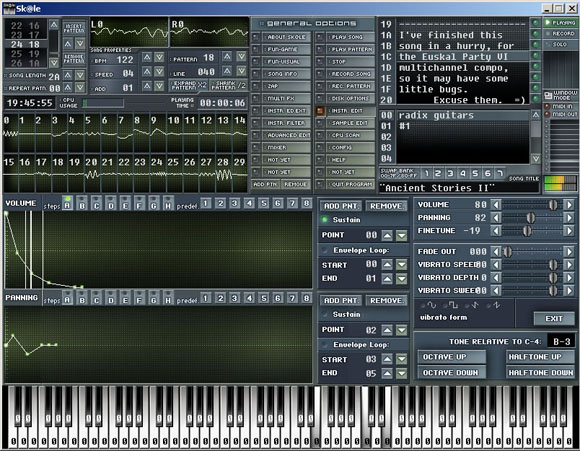
Welcome back to another installment of “Straight Out of No Cash”. Despite repeated delays, death threats, acts of God, ElectroPlankton, and a laptop catching on fire, I’m finally back to give more bargain basement tips, tricks, and goodies for the Windows-centric set.
It used to be the case only 5 years ago that one had to spend money, sometimes several hundred for even the most basic DAW software. In recent years however, there has been such a large explosion in the amount of Windows freeware that it’s now gotten to the point where it’s possible to get a pretty good plug-in host sequencer without spending a single red cent. In this week’s article, I will examine four kick-ass free sequencer/plug-in hosts for Windows. Two free trackers, and then two free-while-in-beta sequencers.
![]()
Trackers (see Wikipedia, CDM) have had a long and venerable history in computer music, going all the way back to the 8-Bit era of Amiga and Atari. By far the simplest form of computer sequencer, to most modern musicians they look rather strange and alien. Despite the shift towards piano roll multi-track sequencers, many musicians to this day swear by the tracker method for its workflow and low performance overhead. Although not terribly difficult to learn, it often helps if one has a programming background, as a tracker file can look very much like a set of programming instructions. Tunestore.de has a great section for the beginning tracker, as it gives some basic concepts about what tracking is and how one can write music in such an environment.
Today’s trackers take the old tracker paradigm, and add modern features such as VST plug-in support, audio track recording, automation, and modular patching. Both Psycle and Skale Tracker are modern tracker style plug-in host sequencers with the full range of features, active development, and vibrant communities available for help and advice.

Psycle is similar in style to an older tracker program, Buzz but with integrated handling of VST-plugins (no wrappers), better handling of audio files, and active development so that when bugs do occur there is an actual chance of them being dealt with. Aside from that, they’re pretty similar in that they are modular, have a wide range of third-party native modules, machines, and plug-ins, and a fairly active user community that can be relied upon for help. The major downside is that because it’s both a tracker as well as a modular host, Psycle can be rather daunting for someone new to computer music. Be prepared to spend several days getting one’s head around many new concepts in the working environment. Also, the handling of VST plugins can be a bit wonky at times, so be prepared for the occasional bug or crash when using third party plugs. Check out the Psycle wiki for the current list of problematic VST plugins.

Skale (http://www.kvraudio.com/get/302.html) I would consider to be similar in style to that of FLStudio (“Fruity Loops”), only with a tracker sequencing interface. Like FL, it has a pleasant user-friendly look, pattern-based playlists, inclusion of an integrated sample editor, and can not only host VST plug-ins but be hosted as a plug-in in another host should the user want to take a track to a different environment. Skale’s sampler supports Soundfont, Akai S5000/6000, and Gigastudio formats which is rather nice for a free tool. Skale also comes with its own visualizer and set of games as a quick diversion